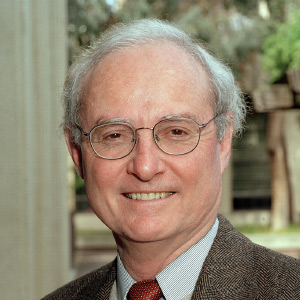In early December Hugo Chavez, the heir apparent of Fidel Castro’s half-century campaign to undermine the United States and promote “socialism” in the Americas, was handily re-elected president of Venezuela. Immediately thereafter he starred at the second South American Community of Nations extravaganza hosted in Cochabamba by Bolivian President Evo Morales. Now the world is again abuzz with talk of a “leftist surge,” a “21st century socialism,” in Latin America. But look again.
For some, “left” mainly means anti-American, and certainly Chavez and his acolytes in at least half a dozen countries are that. With the support of his dying mentor in Havana, Chavez has assumed the post of commander-in-chief in the current cycle of Latin anti-Americanism.
Today it is easy to take a swipe at the United States, as world criticism of U.S. policies has skyrocketed. In Latin America frustration is often directed at U.S. indifference to the region, rather ironic since true anti-Americans should welcome being left alone. But there is also anger at what many consider arrogant U.S. foreign policies generally, including single-minded wars in Iraq and against drugs and terrorism.
Of course much anti-Americanism is purely demagogic scapegoating, for example, blaming the United States for the failures of over-touted and under-implemented reforms of the 1990s, or Latin conditions generally. But how does any of this demonstrate a “leftist surge” when the “right” in Latin America is often as hostile toward America as the “left.”
Others point to the presidents of Brazil, Chile, Peru and Uruguay, all members of long-recognized socialist-oriented parties and fronts. These leaders may be more overtly communitarian than candidates they beat at the polls. But their basic economic perspectives, however unevenly applied, are far more indebted to Milton Friedman, with their emphasis on monetary stability and markets, than to Karl Marx. Ditto more “centrist” leaders in Colombia and Mexico.
So we are back to Chavez and his hangers-on who have won elections in Bolivia, Ecuador and Nicaragua, and in some respects Argentina, and nearly taken presidencies in Mexico and Peru. Even just-elected Peruvian President Alan Garcia, who during his campaign slammed Chavez for interfering in Peru’s affairs, was cozying up to Venezuela’s leader in Cochabamba.
To many the bumptious Chavez, who ceaselessly spouts phrases from Fidel, Mao Zedong and Simon Bolivar, seems something special, but mostly he is just a typical big-mouthed caudillo of the sort that has for centuries enthused and betrayed Latins who want solutions to perennial problems. He is different from most caudillos in his international orientation and the fact that his arrogance is funded by multi-billions of dollars pouring in from oil sales to energy addicts worldwide, much of which he passes out to supporters at home and abroad.
But Chavez and Morales, while claiming to represent the people, are really in the vanguard of promoting a failed past that will further cripple already weak economies and their people. One example of turning the clock back is forcing energy companies to renegotiate contracts on terms that give much more control and money to Latin governments. That may seem fair enough, for if energy giants are willing to take less profit, that’s what negotiating is all about. But forcing re-negotiations of earlier agreements opens doors to still more of the same later, and disrespect for contracts may reduce critical future foreign investments, without which Latin energy resources remain just reserves.
However well-meaning Chavista-leaning leaders may be, so far they have been largely improvising demagogues manipulating legitimate popular needs and aspirations with handouts (mostly Chavez), populist cant and knee-jerk anti-American scapegoating. They have led or thrived from massive public protests that overthrew elected governments from Argentina to Bolivia or campaigned to get themselves legally elected presidents. Today’s centuries-old Latin culture remains paternalistic on the surface, with “strongman” leaders cultivating expectations that they are nurturing parents. They almost never are.
Chavistas, like most of their predecessors, are manipulating frustrations that stretch back a millennium. They are the handiwork of leaders and governments of the “right,” “center” and “left,” of pre-colonial Indians, Spaniards, Portuguese and post-independence Latins, of authoritarian, democratic, civilian and military regimes. Almost none have permanently improved access to food, good jobs, serious education, equality before the law or personal opportunities for the people as a whole. In the December 2006 Latinobarometro poll conducted in 18 countries, some 69% of Latins said their countries are mainly governed by powerful groups in their own interests. That is Latin history in a nutshell.
Several decades ago, British historian Hugh Thomas described Fidel Castro’s regime as “fascist left,” meaning “a regime with totalitarian leftwing goals established and sustained by methods of fascism.” But true socialist goals are seldom realized anywhere, so what emerged in Cuba was the state fascism. Venezuela is moving rapidly in that direction and the danger is that other Chavista-oriented governments, if they survive, will do the same.
The only hope for the region is capable leaders with broad popular support implementing sound, pragmatic programs to unleash individual productivity and general well-being over the long term. Some “old leftists” and “centrists” are trying to do some of this, with very limited success. Elsewhere, the Chavista-types seem determined to self-righteously charge back into the failed past and make their countries increasingly irrelevant beyond their own borders, except as suppliers for Asia’s rapidly growing and insatiable dragons and big cats.








